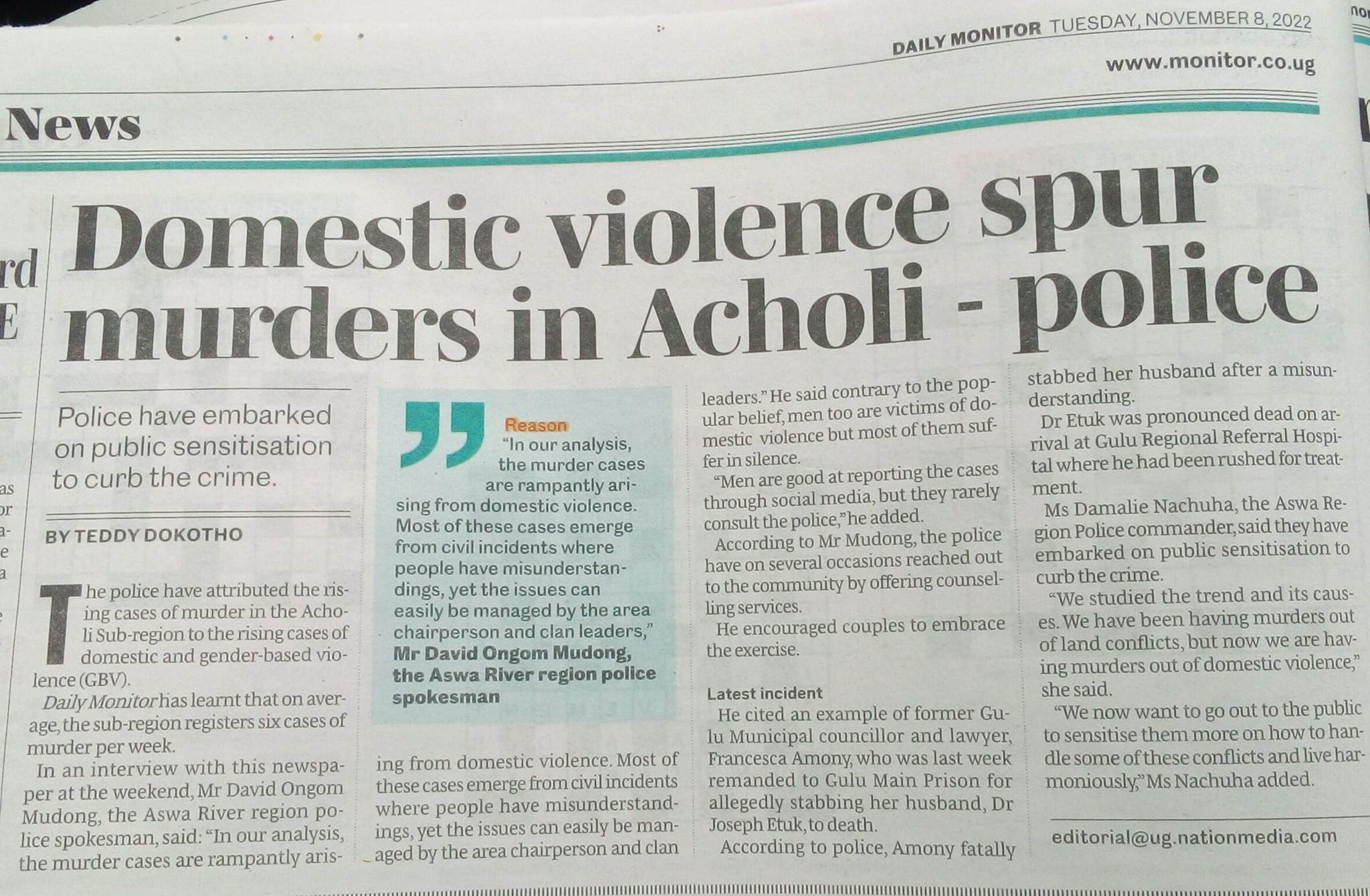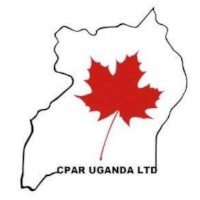“When her husband died, my great grandma was pushed off family land and she lost all her cattle when she refused to marry her brother-in-law. Her father welcomed her back to his home and gave her a small piece of land and one cow to start the process of raising her boys.”
Testimony recently shared on Twitter by a female Ugandan media personality
CPAR Uganda would love to say that the case of the media personality’s grandma was a long time ago and such sexual and gender-based violence no longer happen in Uganda. Sadly, we cannot. In 2020, the Uganda Bureau of Statistics (UBOS) conducted a national survey on violence in Uganda and among its survey reports (2021) is the “Uganda Violence Against Women and Girls Survey 2020,” based on data it collected from 2,683 women aged 15-59, who it interviewed from all regions of Uganda; and of whom 34 percent were aged 15-24 years.
The UBOS findings, include the chilling finding that 640 women and girls (97 percent of those UBOS surveyed) of greater northern Uganda confirmed that they had experienced physical or sexual violence from a partner or a non-partner or both, since age 15. The highest prevalence being in Bukedi and West Nile sub-regions, where 100 percent of the women and girls interviewed confirmed being victims. Read the other relevant UBOS findings and the full problem statement here.
It is in this context that CPAR Uganda is fundraising to provide hundreds of grassroots women of greater northern Uganda with effective opportunities to heal; to speak out and up against sexual and gender-based violence; and to secure their land use rights and food sovereignty. Simultaneously, CPAR Uganda desires to contribute to the body of empirical qualitative knowledge on the nexus of sexual and gender-based violence, constructive dispossession of women of their land and food insecurity in greater northern Uganda.
For this intervention we plan the following major goals. That young people will:
- Ignite conversations and do theatre and media induced participatory action research on sexual and gender-based violence. Read more here.
- Conduct qualitative investigation and do policy advocacy against sexual and gender-based violence. Read more here.

The time to act against sexual and gender-based violence in the greater northern Uganda is now. CPAR Uganda has the will, the expertise, and the physical asset base to do so. With financial assistance, CPAR Uganda will be effective in laying a good foundation for the significant reduction of sexual and gender-based violence in greater northern Uganda and will significantly contribute to the body of empirical qualitative knowledge on sexual and gender-based violence in Uganda.
This promise will be achieved and will be proven, without a doubt, for CPAR Uganda will ensure that the necessary data to measure the success of this intervention is available. We will develop and establish a robust and functional monitoring and evaluation system, which will ensure the administration of monitoring tools and that data will be collected at every stage of implementation.
Our proposed intervention – the fight against sexual and gender-based violence fits within the purpose for which CPAR Uganda was established, which is:
“Building healthy communities in Uganda. To engage in charitable, educational, emergency relief and scientific activities and in furtherance of such activities to stimulate the development, dissemination and widespread application of technologies suitable and adaptable to the social, cultural and economic conditions of developing countries.”
CPAR Uganda Memorandum of Association
Programmatically, CPAR Uganda holds a vision that people of greater northern Uganda – West Nile, Acholi, Lango, Teso, Karamoja and Bukedi – are able to meet their basic and genuine needs through their own self-reliant participatory efforts.
Since, the majority of Uganda’s population is younger than 30 years of age, CPAR Uganda’s mission is to train and mentor young people of greater northern Uganda to possess an attitude of self-reliance, and the requisite will and skill to innovate and to initiate interventions that cause positive change in their respective communities.
Featured photo @ Ateker Cultural Centre Karamoja.


2 responses to “Fight against sexual and gender-based violence”
[…] of Area One. The research team should be present at the auditions for the 14 cast members of the greater northern Uganda version of ‘Shame on your hand’, in order to collect data through observation of the process and people – interaction of those who […]
LikeLike
[…] of Area One. The research team should be present at the auditions for the 14 cast members of the greater northern Uganda version of ‘Shame on your hand’, in order to collect data through observation of the process and people – interaction of those who […]
LikeLike